Proton Pass Review: Password Manager that Hides Your Email Address

With identity theft and breached credentials all over the news, password managers have become necessary to help generate strong, unique passwords. Proton AG, a Swiss-based company revered for pioneering the world’s largest encrypted email service – Proton Mail, has introduced its take on a password manager solution. Known as Proton Pass, it brings an exciting blend of unique features, stringent security, and privacy practices, setting it apart from other free password managers. For a limited time, you can also get the Plus edition for $1!
As a note, this is not a paid review from Proton AG and is exclusively my thoughts after purchasing the Proton Pass Plus $1/month offer.
Table of contents
- Proton Password Manager for Identity Protection
- Unlimited logins, notes, and devices
- Open-Source Code for Enhanced Transparency
- Multiple Vaults, Encrypted Notes, and More
- Proton Pass: Made for the Modern Web
- Pricing for Proton Password Manager
- A Global Launch for a Global Audience
- Migrating from another password manager
- Features to note
- A couple of Nitpicks about Proton Pass in using it
- Final thoughts – is it a good solution?
Proton Password Manager for Identity Protection
One of the strengths brought to the table with Proton Pass is Proton realizes privacy is not just your passwords. It is also your identity. Proton Pass helps to form a complete identity protection tool using a feature that separates Proton Pass from other password managers called ‘Hide My Email‘ aliases.
This system provides an additional layer of security and privacy by serving as a buffer between your actual email address and the online services you use, thereby significantly reducing the risks of data breaches. Since Proton AG cut its teeth on email services, they already have the infrastructure and solution to easily integrate this into the solution, which is an awesome feature!
When a form prompts you for your email address, you will see Proton Pass offer to Hide my email and use an alias for @passinbox.com.
If there is a data breach with the service you signed up for, only the email alias is compromised, not your real email address. So you can create a new email alias and change the password, and you are good to go. You can’t so easily change your real email address if it is exposed to a data breach.
Unlimited logins, notes, and devices
Unlike some password managers that restrict advanced features to premium versions, the Proton Pass free version offers unlimited logins and compatibility with unlimited devices, living up to the ‘Proton Unlimited’ promise. However, 2FA authenticator, multiple vaults, and other features are only found starting in the Plus edition.
With Proton services such as Hide My Email and the integrated 2FA authenticator in the Plus edition, Proton is helping to strengthen online privacy very economically.
Open-Source Code for Enhanced Transparency
Proton Pass is an open-source password manager to maximize transparency and earn user trust, allowing the Proton community and cybersecurity experts worldwide to scrutinize its open-source code.
Such transparency helps ensure the software stays true to its promise of providing robust, end-to-end encryption for all your devices.
Multiple Vaults, Encrypted Notes, and More
Proton Pass goes beyond storing login credentials. The Plus edition allows the creation of multiple vaults and provides storage for private notes. These encrypted notes and other data are kept secure via a hardened implementation of end-to-end encrypted data, ensuring that only you can access your information (these security features are also found in the free edition).
Proton Pass encrypts information so that even if an attacker were to get a copy of your encrypted data, they can’t read it due to the protection of the encryption process.
Proton Pass: Made for the Modern Web
The Proton password manager is designed to work seamlessly across most major browsers, with browser extensions available for Chrome, Firefox, Edge, and others. Additionally, it offers offline access, allowing you to retrieve your login data, encrypted notes, and more, even without an active internet connection.
Pricing for Proton Password Manager
The Proton Pass password manager provides a free password manager version you can use to store your passwords using the browser extension. However, the free version does limit you to 10 hide my email aliases.
As you can see below, there are currently three pricing tiers:
Proton Free – Unlimited logins and notes but a limit of (10) hide-my-email aliases
Pass Plus – Unlimited logins and hide-my-email aliases, also integrated 2FA authenticator and multiple vaults
Proton Unlimited – contains access to all the Proton services
After signing up for Pass Plus, in my dashboard, below are the more detailed metrics of what you get with the Plus account and also the comparison they give if you upgrade to the Proton Unlimited account.
A Global Launch for a Global Audience
The recent global launch of the Proton Pass reinforces Proton’s commitment to privacy online. As a part of the Proton ecosystem, it provides the same Swiss-grade security, adherence to Swiss privacy laws, and commitment to open-source code that users have come to expect from other Proton services.
Proton Pass is an excellent newcomer in the password manager space, providing digital privacy tools with a vision of transforming from a mere ‘Password Manager’ into an ‘Identity Manager.
As mentioned, and shown above, to go along with the recent launch, you can get Proton Pass Plus for $1/month forever.
Migrating from another password manager
I found testing out migrating from other password managers to be painless. I ran a test migrating from 1Password to Proton Pass, which only took a few minutes. The extension has a migration wizard built-in and directs you on the files you need to have from your other password manager to import into Proton Pass.
The list of compatible password managers from which you can import includes:
1Passwod
Bitwarden
Brave
Chrome
Dashlane
Edge
Firefox
KeePass
Keeper
LastPass
Proton Pass
Safari
You are prompted to upload your password manager export. In this case it is 1Password.
The import is successful and brings over items from 1Password.
Features to note
As expected, you can enable 2FA on your Proton Pass account.
You can also set up a PIN code to lock your Proton Pass interface. In addition, you can set up the expected “auto lock” feature after a certain time period.
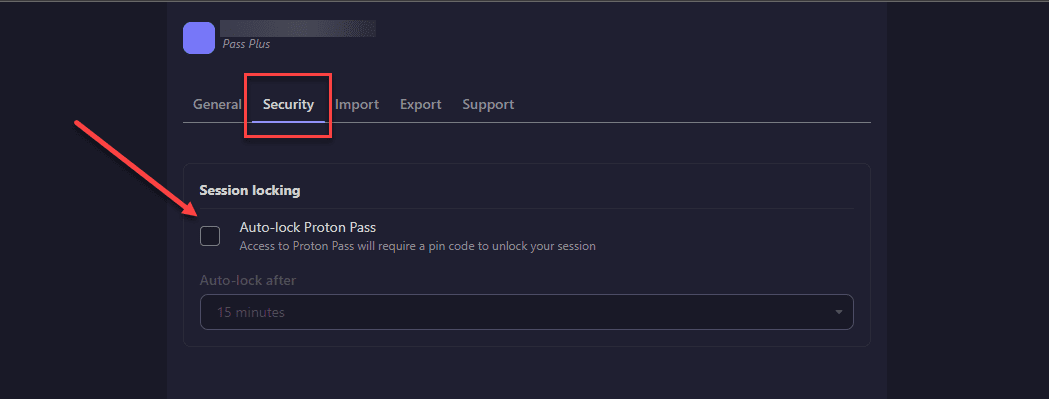
A couple of Nitpicks about Proton Pass in using it
I want to mention a couple of things that I think should be improved with Proton Pass. These are:
It doesn’t have Duo Push integration available from what I could find. Your 2FA is One-Time Passcode only with no push. It would be great to have Push for 2FA as I have in 1Password.
One-Time Passcodes don’t autofill – I’m not 100% sure if this is from the import from 1Password. However, I noticed that Proton Pass doesn’t autofill the OTP with websites I have OTP setup for with 1Password that were imported. I have to click the Proton Pass extension and copy the OTP code manually, which is annoying.
Final thoughts – is it a good solution?
Proton Pass is very forward thinking when it comes to security, mainly due to the stringent Swiss privacy laws. It provides a great offering among free password managers and even paid solutions. The Hide My Email feature is an excellent feature that will cut down on SPAM and hides your identity, not just your password. I don’t like that I can’t do Duo Push for 2FA, but hopefully, this feature will be added in the future. The $1/month forever is an excellent value for the great features.


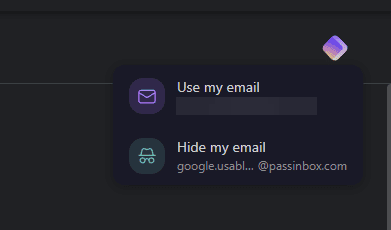
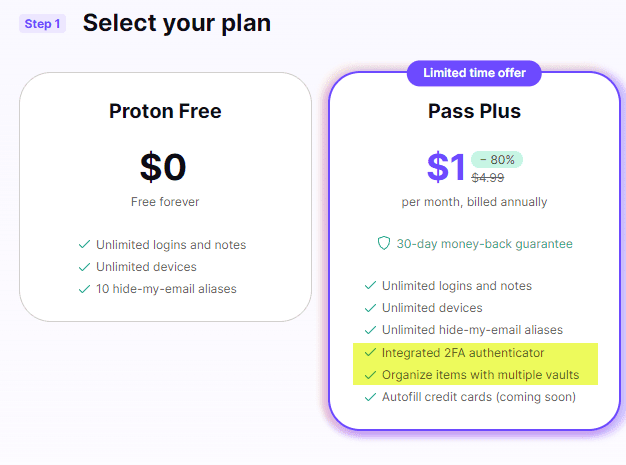
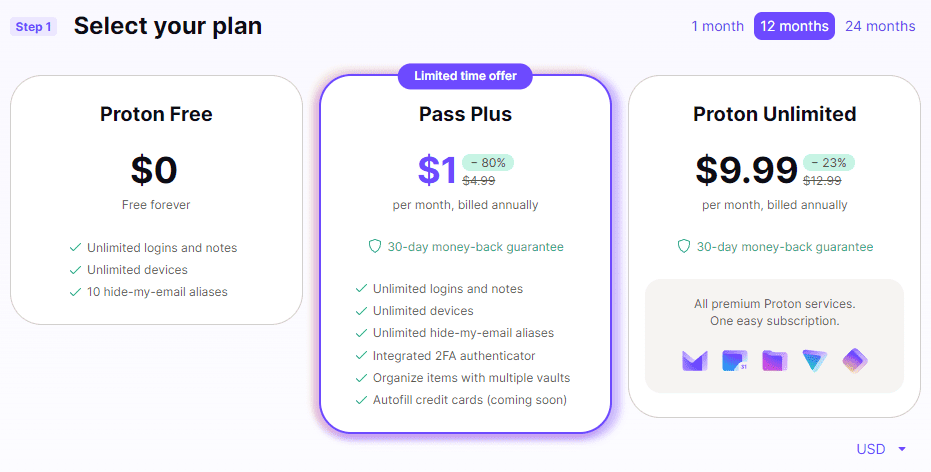
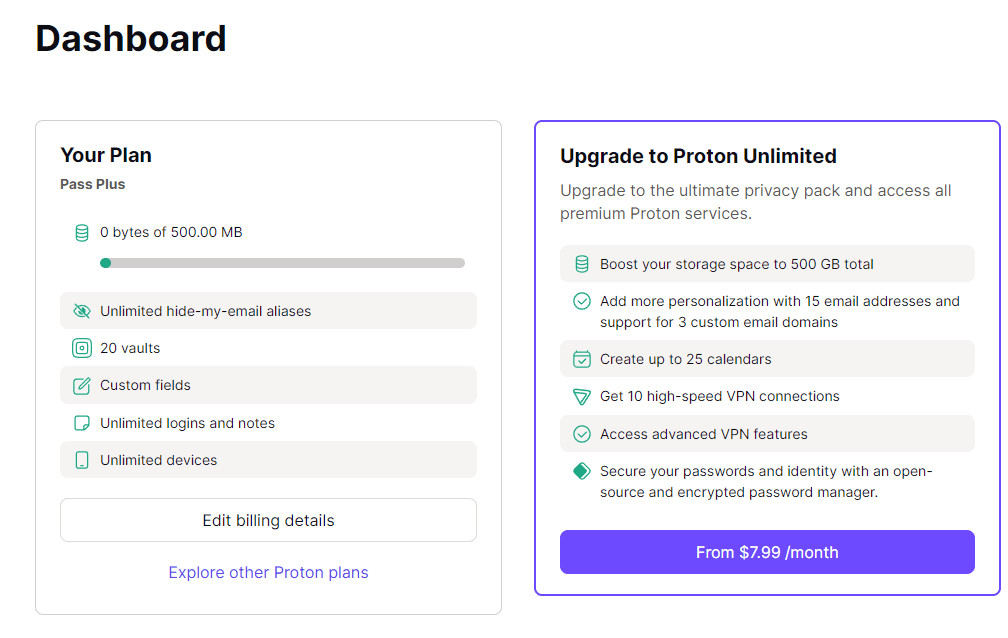

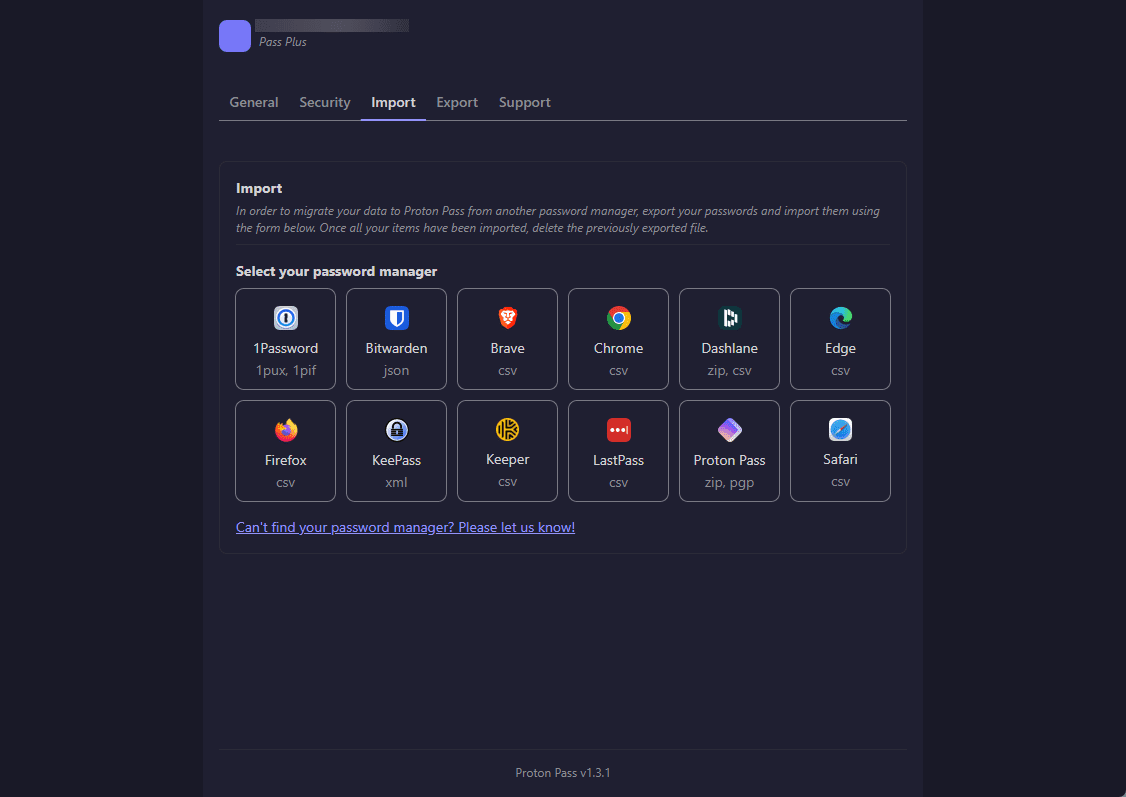
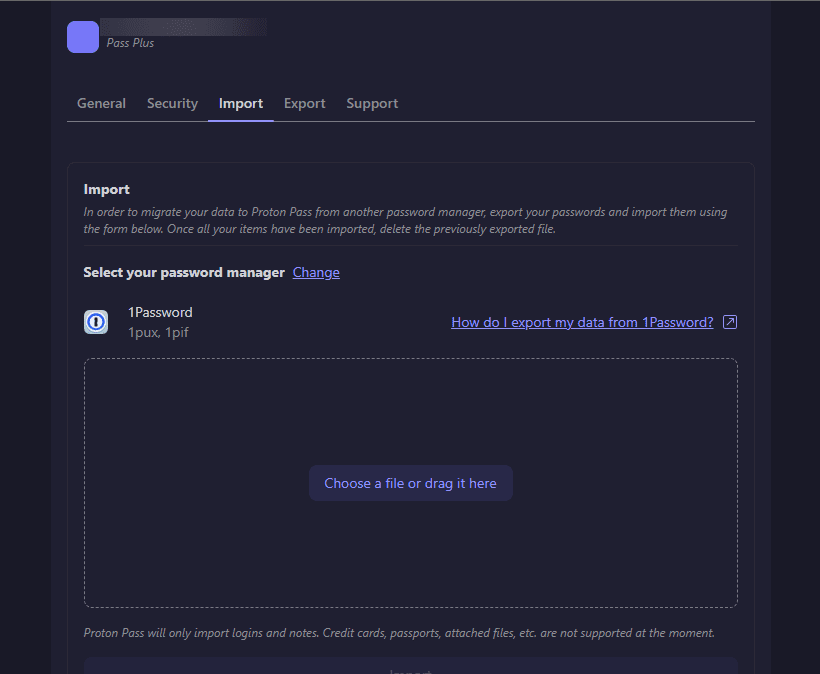
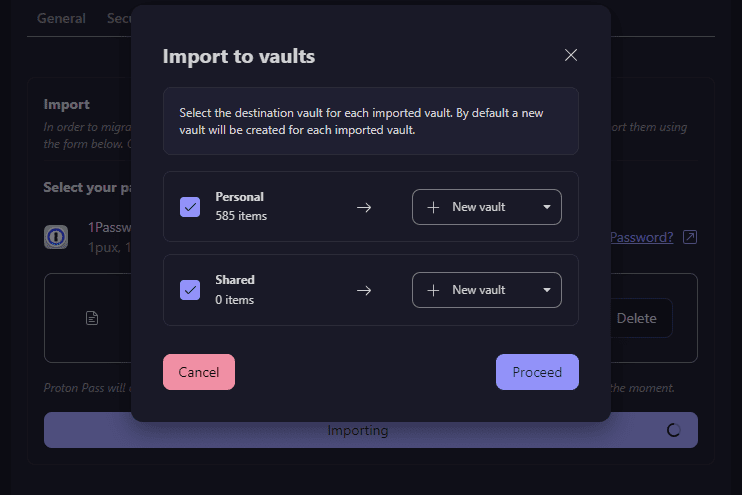
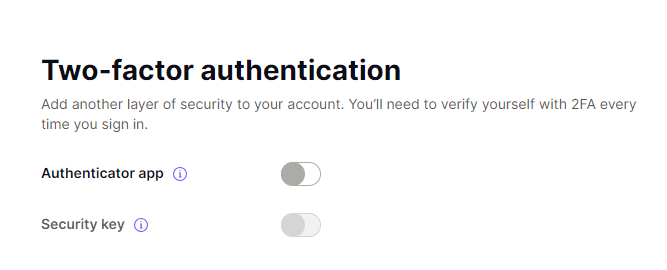
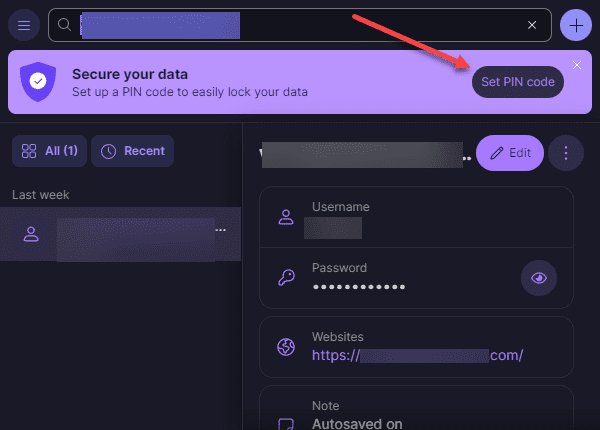


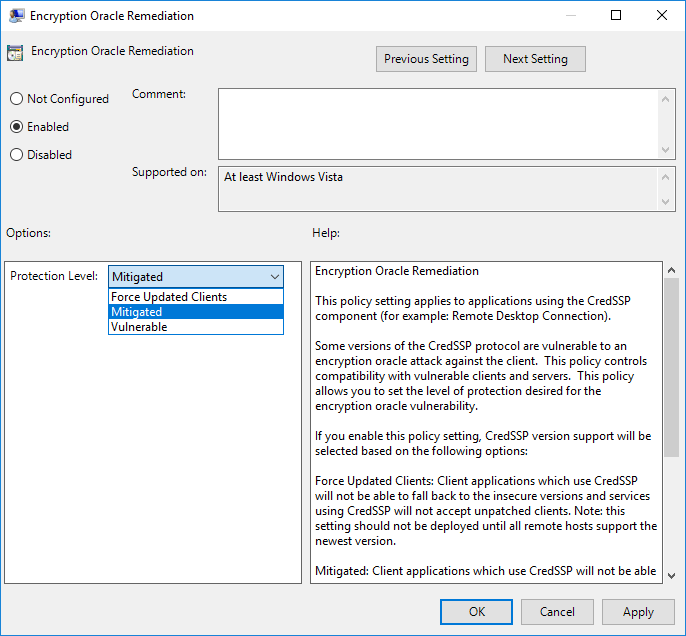
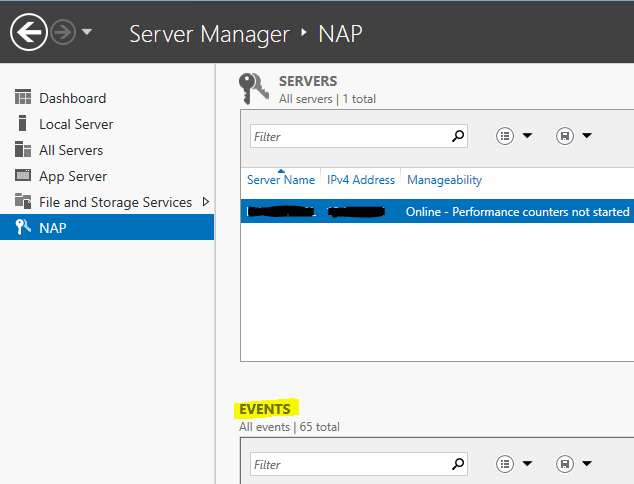




i love it, but still lacks a desktop app.
Tercio good point. That is true and definitely another point of difference between 1password and others.
Need desktop app asap
John,
Thank you for the comment. Definitely agree with you on that front as well. I like the 1Password desktop app and use quite a bit. Will be nice to see if the Proton Pass solution will eventually have this.
Brandon
Hello,
thank you for the comment. I haven’t heard anyone discuss security with these types of devices. But, it would be a good conversation for sure.
Brandon